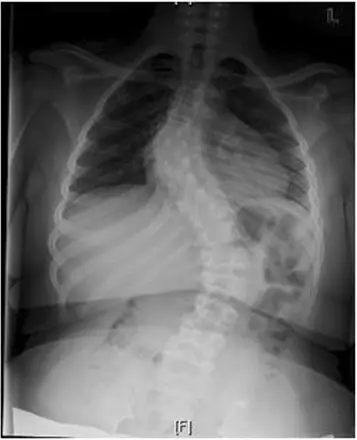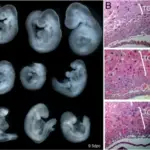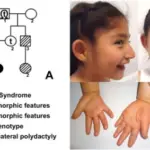Prader-Willi syndrome is is a genetic disorder caused by a loss of function of specific genes on chromosome 15.
What is the Pathology of Prader-Willi Syndrome?
The pathology of Prader-Willi syndrome is:
-Etiology: The cause of Prader-Willi syndrome is loss of imprinted genomic material within the paternal 15q11.2-13 locus.
-Genes involved: SNRPN gene, P gene (type II oculocutaneous albinism), UBE3A gene, and necdin gene
-Pathogenesis: The sequence of events that lead to Prader-Willi syndrome are loss of expression of several genes encoded on the proximal long arm of chromosome 15.
How does Prader-Willi Syndrome Present?
Patients with Prader-Willi syndrome typically are male or female, and typically present at early age. The symptoms, features, and clinical findings associated with Prader-Willi syndrome include overeating, obesity, decreased muscular tone in infancy, mental retardation, small hands and feet, diabetes, and obesity.
How is Prader-Willi Syndrome Diagnosed?
Prader-Willi syndrome is diagnosed based on specific clinical features, and it is confirmed by genetic testing.
How is Prader-Willi Syndrome Treated?
Prader-Willi syndrome is treated with growth hormone to improve lean body mass, corrects osteopenia, does not appear to enhance the development of scoliosis, and anecdotally modulates behavior in some patients. Sex hormones may improve secondary sex characteristics.
What is the Prognosis of Prader-Willi Syndrome?
The prognosis of Prader-Willi syndrome is good with proper treatment and lifestyle management.



